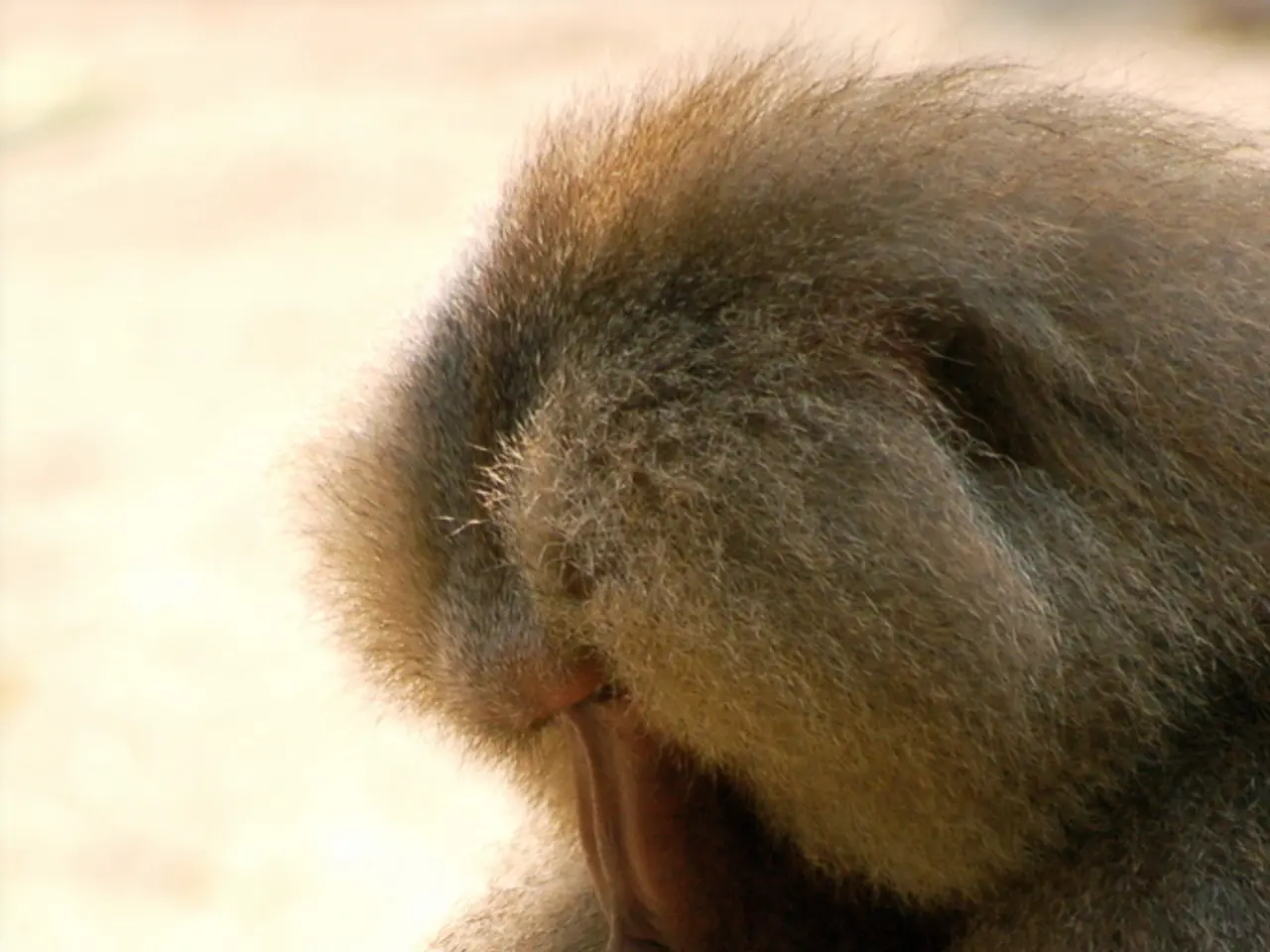Even apes (orangutans) had a rough night? Then orangutans catch some Z's again
Orangutans return to sleep after the interruption.
Look, orangutans are known for their long naps - around 12 to 13 hours a night. But, just like us humans, they aren't beyond a mid-day snooze if they've had a crappy sleep. According to Alison Ashbury from the Max Planck Institute for Behavioral Biology (MPI-AB) in Radolfzell, the lead author of a study in the journal "Current Biology", this extra shut-eye comes with a bit of effort for these tree-dwellers.
"Imagine staying up late with your pals or being kept awake by a snoring roomie. It's a bit like that for an orangutan," said Ashbury. "Maybe they prioritize socializing over sleep or are disturbed by another orangutan - or both."
Researchers found that for every hour less sleep at night, daytime naps were 5 to 10 minutes longer. And on 41% of the observed days, orangutans made up for lost sleep with at least one nap, averaging around 76 minutes. What's more, shorter naps meant more naps throughout the day.
"Even a quick nap can have a significant restorative impact on humans," said co-author Meg Crofoot, director at MPI-AB. "It's likely these naps help orangutans recover not just physically but cognitively too."
This research sheds light on the evolutionary reasons behind sleep and its importance in both humans and primates, including orangutans. As Ashbury noted, "Why have animals, from humans to primates and even spiders, evolved to spend so much of their lives in this vulnerable, unconscious state?"
The researchers studied adult orangutans at the Suaq Balimbing Monitoring Station on the Indonesian island of Sumatra. They found that orangutans build day nests more frequently here, offering a quick and secure place for a nap.
Observe an orangutan taking a nap? Not so easy, according to the researchers. Every evening, an orangutan builds a nest high up in a tree by bending, weaving, and breaking branches for about ten minutes, and adding a mattress of leaves. After that, everything goes quiet, which the researchers interpret as sleep time.
- Apes
- Animals
- Behavioral Research
Sources:
- Orangutans' Daytime Napping Strategies as a Form of Sleep Compensation: Dynamic Changes in Nest Use and Daytime Rest Across Sleep Loss
- Sleep restoration in orangutans: The functions of daytime napping
- Orangutans self-medicate with liana leaves to heal wounds








